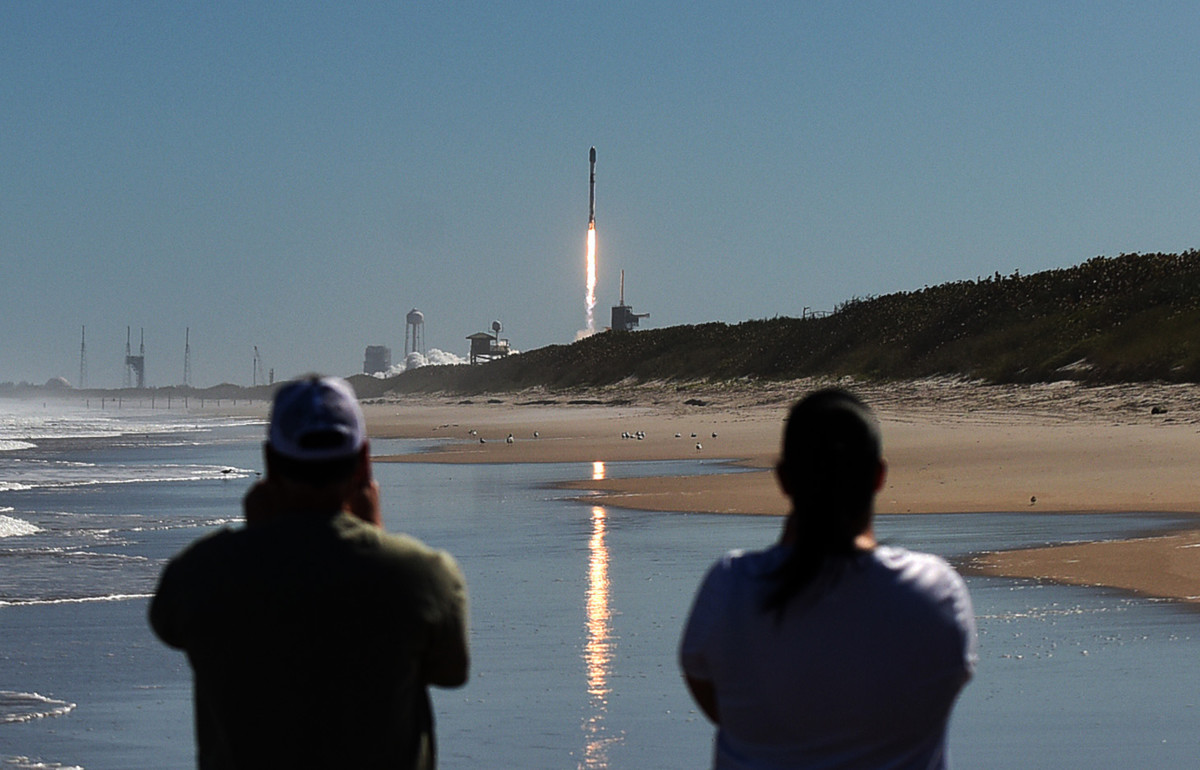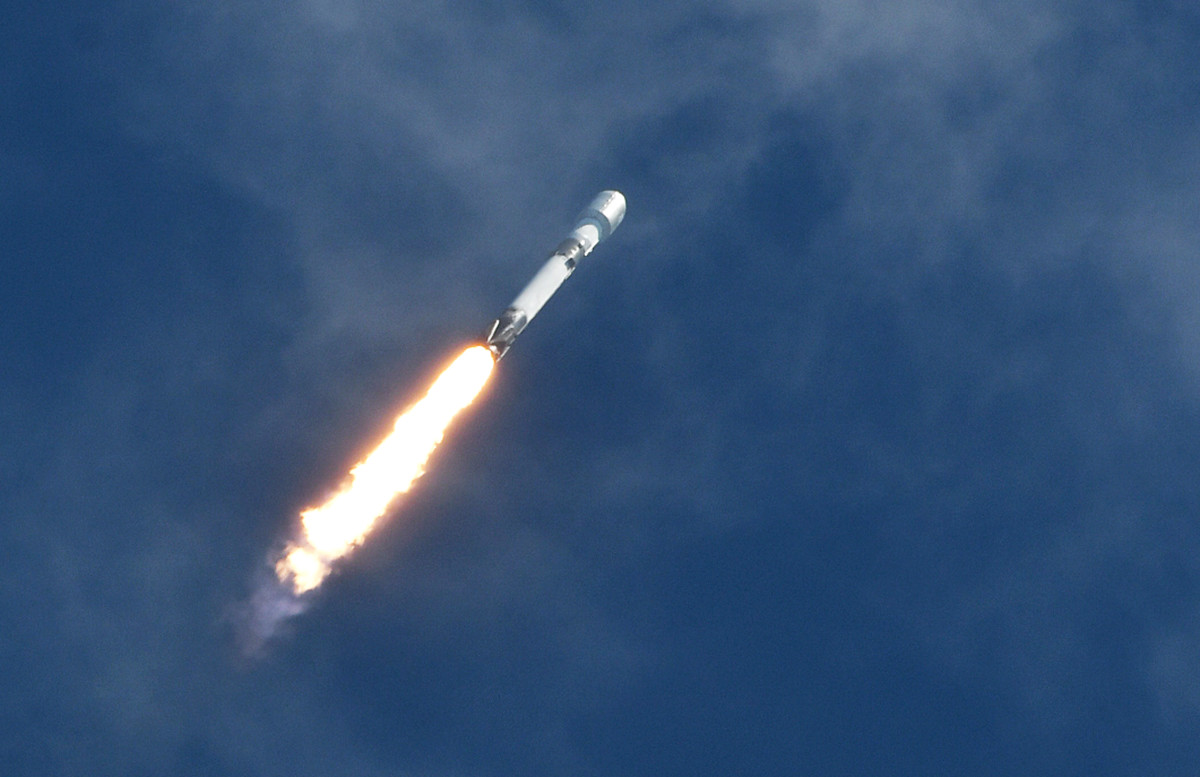
SpaceX's Starlink website has detailed the space-tech company's overtures into the direct-to-cell market.
Its ever-growing Starlink satellite constellation will support text beginning in 2024, voice and data beginning in 2025, and the internet of things, which includes devices with software and sensors, beginning in 2025 as well.
These direct-to-cell satellites will be launched initially by the company's Falcon 9 rockets. Once SpaceX's Starship rocket is complete, the vehicle will launch and deploy the satellites.
Related: SpaceX requests special approval to take a huge step forward
Starlink is currently partnered with a total of six telecom providers worldwide, including T-Mobile (TMUS) -), Rogers, Kddi, Optus, One NZ and Salt.
T-Mobile announced its partnership with SpaceX a little more than a year ago, saying that the U.S. was home to at least 500,000 square miles devoid of cell signals. The carrier said that its partnership with SpaceX would enhance its mission to eliminate dead zones and increase global connectivity.

T-Mobile Chief Executive Mike Sievert said in a statement at the time that the partnership represented a "groundbreaking alliance" that would pose a potent challenge to the world's current modes of connectivity.
In making the alliance a reality, SpaceX last week requested Special Temporary Authority from the Federal Communications Commission to launch and test second-generation satellites that are equipped with direct-to-cell technology.
SpaceX's latest effort to become a leader in direct-to-cell satellite coverage comes a few months after AST SpaceMobile, a satellite company partnered with AT&T (T) -), achieved what it referred to as the first-ever phone call routed from space between two unmodified cell phones.
Related: SpaceX slams report implicating it in a potential threat to 'people on Earth'
These upgraded satellites, SpaceX said, will work with existing LTE phones "wherever you can see the sky." Use of a direct-to-cell Starlink connection will not require additional hardware or equipment.
SpaceX's Starlink satellite constellation currently numbers around 5,000, which the company plans to boost to more than 40,000.
Concerns, meanwhile, are mounting about the implications of a more crowded low-Earth orbit.
Action Alerts PLUS offers expert portfolio guidance to help you make informed investing decisions. Sign up now.







